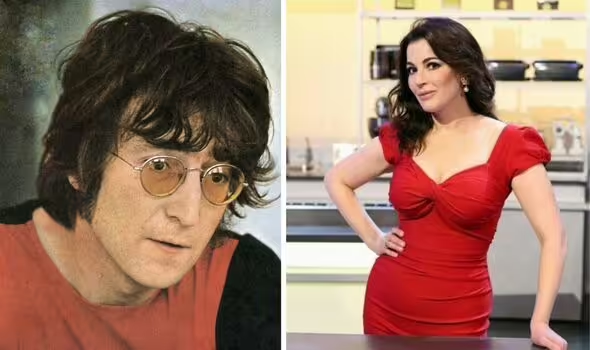Celebrities Who Said “No Thanks” to Royal Honours: From John Lennon to Nigella
Across the decades, many high-profile figures have rejected or returned UK honours—choosing personal integrity over titles. From iconic musicians to beloved chefs, their reasons vary. Yet the message remains clear: not every accolade reflects their values.
John Lennon & George Harrison: The Beatles’ Bold Statements
In 1965, all four Beatles accepted MBEs. Later, however, John Lennon returned his in 1969—citing protests against the Nigeria–Biafra war and Vietnam involvement . Moreover, George Harrison declined an OBE in 2000—reportedly feeling slighted that Paul McCartney received a knighthood but he did not . In other words, their refusals were deeply personal.
David Bowie & Nigella Lawson: Icons with Convictions
David Bowie turned down two honours: a CBE in 2000 and a knighthood in 2003. He explained he never sought them and didn’t know what they represented . Similarly, Nigella Lawson declined an OBE in 2001. She stressed she wasn’t saving lives—just doing what she loved . Thus, for both, authenticity outweighed ceremony.
Writers, Poets, Thinkers: Refusing Empire
Several revered authors have also rejected honours. Benjamin Zephaniah, for example, refused an OBE in 2003, condemning the award’s ties to colonial violence . Meanwhile, Alan Bennett and C.S. Lewis declined for reasons ranging from modesty to objections around imperialism . In short, their refusals spoke to broader principles.
Comedians, Academics & Activists Join In
John Cleese dismissed a CBE as “silly” and also declined a peerage . Later, he emphasized it wasn’t about snubs—it was about purpose. Michael Sheen returned an OBE in 2017, citing his Welsh identity and discomfort with honours linked to empire . Clearly, even after accepting, some honours felt misaligned with their evolving beliefs.
Scientists & Scholars: Principles Over Prestige
Stephen Hawking reportedly declined a knighthood in the late 1990s. His reason: frustration over science funding and government’s priorities . Also, Michael Faraday and E.M. Forster quietly viewed such honours as incompatible with their values . For them, recognition came from work—not titles.



